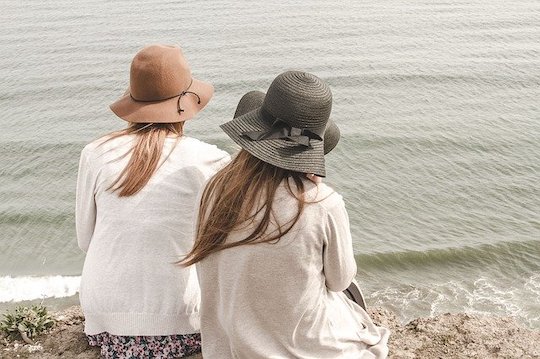Why Don't I Have Friends?
By Dr. Margaret PaulAugust 03, 2009
If you are wondering why others have friends and you don't, read this article!
 "Why don't I have friends?" asked Isabella in one of our Skype sessions.
"Why don't I have friends?" asked Isabella in one of our Skype sessions.
Isabella, 25 and very attractive, was having a problem that many people have. Sometimes, if people don't keep their high school friends or meet friends in college or at work, they may have trouble making friends.
Yet there are many people who seem to be able to make friends wherever they go. What is the difference between Isabella and these people who easily make friends?
Actually, there is a big difference.
The difference has to do with intent - with WHY a person wants to be friends.
Take a moment to go inside and be honest with yourself. Which is more important to you regarding making friends:
- To get caring?
- To share caring?
It was obvious to me that Isabella's desire to have friends came from her ego wounded self. She wanted friends to fill her up, to entertain her and make her laugh, and to approve of her. She did not think of friendship in terms of what she had to offer, but of what she could get.
I thought of Chloe, another one of my clients, who had recently moved to a new city and already had a few really close friends. What was the difference between Isabella and Chloe?
The Big Difference...
Chloe is a naturally giving and caring person, with a quick and open smile. She is a good listener, and is the kind of person that you just know would be there for you if you needed her. The major difference between Isabella and Chloe is that Isabella has a big black hole inside her, while Chloe is full of love inside.
This is because Isabella makes others responsible for her feelings of worth and safety, while Chloe takes responsibility for her own sense of worth and safety. The result is that people feel pulled on by Isabella to fill her up and they back away from the pull, while they feel safe opening up with Chloe because they intuitively feel that she doesn't need anything from them.
"Isabella, what is your idea of a friend?" I asked.
"A friend is there for you when you need her. She listens to you and wants to spend fun time with you."
"And what is your idea of being a friend? What do you see yourself offering as a friend?"
Silence...
"What are you thinking, Isabella?"
"I've never thought about being a friend. I've just thought about having a friend."
"It sounds like you want a friend to get caring rather than to share caring - is that right?"
"Yeah, I guess so. Is that wrong?"
"It's neither right or wrong. It just doesn't work well. Why would someone want a one way friendship with you?"
"I never looked at it that way."
"Isabella, you don’t have any friends because you have a big black hole in you that pulls on others to fill it up. No one wants the responsibility of filling up your emptiness. Until you learn to be loving to yourself and take responsibility for your own feelings of worth, you will be pulling on others to do this for you, and they will back off from you. They will not be attracted to your neediness.
"So what do I need to do to make friends?"
"You need to make friends with yourself first, by learning and practicing the Inner Bonding process - learning and practicing how to take loving care of your own feelings and define your own worth. Are you willing to do this?
"Yes!"
Isabella did do her inner work and was so gratified to find herself gradually making some friends. It took time, but it was worth it!
Join Dr. Margaret Paul for her 30-Day at-home Course: "Love Yourself: An Inner Bonding Experience to Heal Anxiety, Depression, Shame, Addictions and Relationships."
 Send this article to a friend
Send this article to a friend  Print this article
Print this article  Bookmarked 11 time(s)
Bookmarked 11 time(s)
| Related Articles |
|---|
| "I Feel Empty" |
| Self-Abandonment |
| How Do You Abandon Yourself? |
| Have You Abandoned Yourself? |
Comments
| Author | Comment | Date |
|---|---|---|
| Join the Inner Bonding Community to add your comment to articles and see the comments of others... | ||

Daily Inspiration
What path are you really on? Do you stay open as long as things are going your way but retreat to anger or withdrawal as soon as you are displeased with someone or something? Or, do you stay open even in the face of conflict and challenges? Today, be honest with yourself regarding which path you are truly devoted to: The Path of Fear or The Path of Love and Courage.
By Dr. Margaret Paul

 Share with Del.icio.us
Share with Del.icio.us Share with Digg
Share with Digg







